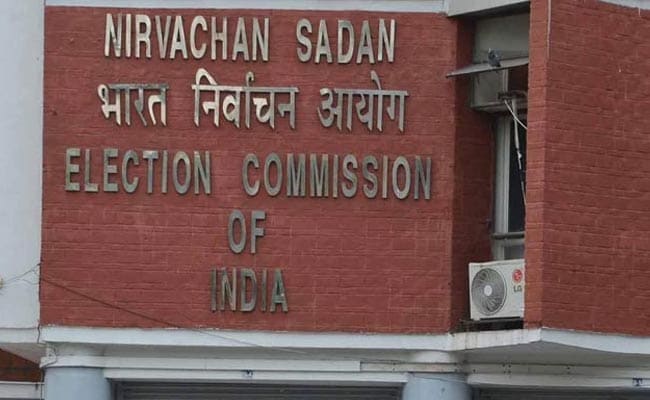
To a questionnaire, the Election Commission, said it was "not feasible" to handle all RTI (File)
NEW DELHI:
People can apply online to the Election Commission to get into the voters list, update their address or track the status of their request. But if they want some information from the commission, they will have to go back to a paper and pen format.
The Election Commission has refused to comply with the right to information, or RTI, law that requires public authorities to respond to information requests within 30 days if the request is made through the government's online information portal.
Official documents show that 1,951 right to information requests had been filed through the portal with the election commission but it hadn't responded to a single one.
RTI activist Neeraj Sharma said he was surprised at the Election Commission's insistence to demand applicants send across their requests by post. "This is violation of a right given to us by law," said Mr Sharma.
The government suggests the poll body was last year linked to its online portal and 25 EC officials trained to deal with the information requests. But there was little that it could do to make the powerful commission fall in line.
To a questionnaire sent to the Election Commission, the poll body said it was "not feasible" to handle all RTI related issues through the online portal since a majority of the applications related to the Chief Electoral Officers of states.
And the central government's RTI portal was only designed for central government departments.
RTI activists, however, point out that this was not a situation which was peculiar to the election commission. Most central government departments routinely receive information requests that pertain to the state governments. When they do receive such requests, they either pass on the requests to the state or tell applicants to apply afresh to the Chief Electoral Officer concerned.
The Election Commission has refused to comply with the right to information, or RTI, law that requires public authorities to respond to information requests within 30 days if the request is made through the government's online information portal.
Official documents show that 1,951 right to information requests had been filed through the portal with the election commission but it hadn't responded to a single one.
RTI activist Neeraj Sharma said he was surprised at the Election Commission's insistence to demand applicants send across their requests by post. "This is violation of a right given to us by law," said Mr Sharma.
The government suggests the poll body was last year linked to its online portal and 25 EC officials trained to deal with the information requests. But there was little that it could do to make the powerful commission fall in line.
To a questionnaire sent to the Election Commission, the poll body said it was "not feasible" to handle all RTI related issues through the online portal since a majority of the applications related to the Chief Electoral Officers of states.
And the central government's RTI portal was only designed for central government departments.
RTI activists, however, point out that this was not a situation which was peculiar to the election commission. Most central government departments routinely receive information requests that pertain to the state governments. When they do receive such requests, they either pass on the requests to the state or tell applicants to apply afresh to the Chief Electoral Officer concerned.
Track Latest News Live on NDTV.com and get news updates from India and around the world

